
![[Advertisements for handguns.]](http://images.nypl.org/index.php?id=835129&t=w)
 n Our camp on the Columbia, near Fort Vancouver, was beautifully situated on a grassy sward close to the great river; and—as little duty was required of us after so long a journey, amusement of one kind or another, and an interchange of visits with the officers at the post, filled in the time acceptably. We had in camp an old mountaineer guide who had accompanied us on the recent march, and who had received the sobriquet of "Old Red," on account of the shocky and tangled mass of red hair and beard, which covered his head and face so completely that only his eyes could be seen. His eccentricities constantly supplied us with a variety of amusements.
n Our camp on the Columbia, near Fort Vancouver, was beautifully situated on a grassy sward close to the great river; and—as little duty was required of us after so long a journey, amusement of one kind or another, and an interchange of visits with the officers at the post, filled in the time acceptably. We had in camp an old mountaineer guide who had accompanied us on the recent march, and who had received the sobriquet of "Old Red," on account of the shocky and tangled mass of red hair and beard, which covered his head and face so completely that only his eyes could be seen. His eccentricities constantly supplied us with a variety of amusements. Among the pastimes he indulged in was one which exhibited his skill with the rifle, and at the same time protected the camp from the intrusions and ravages of a drove of razor-backed hogs which belonged to Mr. Switzler. These hogs were frequent visitors, and very destructive to our grassy sward, rooting it up in front of our tents and all about us; in pursuit of bulbous roots and offal from the camp. Old Red conceived the idea that it would be well to disable the pigs by shooting off the tips of their snouts, and he proceeded to put his conception into execution, and continued it daily whenever the hogs made their appearance. Of course their owner made a row about it; but when Old Red daily settled for his fun by paying liberally with gold-dust from some small bottles of the precious metal in his possession, Switzler readily became contented, and I think even encouraged the exhibitions—of skill.
Among the pastimes he indulged in was one which exhibited his skill with the rifle, and at the same time protected the camp from the intrusions and ravages of a drove of razor-backed hogs which belonged to Mr. Switzler. These hogs were frequent visitors, and very destructive to our grassy sward, rooting it up in front of our tents and all about us; in pursuit of bulbous roots and offal from the camp. Old Red conceived the idea that it would be well to disable the pigs by shooting off the tips of their snouts, and he proceeded to put his conception into execution, and continued it daily whenever the hogs made their appearance. Of course their owner made a row about it; but when Old Red daily settled for his fun by paying liberally with gold-dust from some small bottles of the precious metal in his possession, Switzler readily became contented, and I think even encouraged the exhibitions—of skill.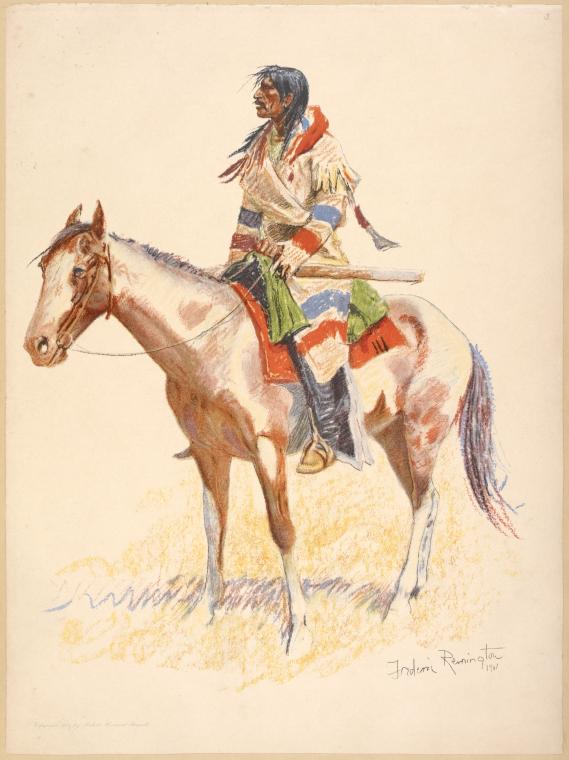
It was at this period (October, 1855) that the Yakima Indian war broke out, and I was detached from duty with the exploring party and required by Major Gabriel J. Rains, then commanding the district, to join an expedition against the Yakimas. They had some time before killed their agent, and in consequence a force under Major Granville O. Haller had been sent out from the Dalles of the Columbia to chastise them;
broke out, and I was detached from duty with the exploring party and required by Major Gabriel J. Rains, then commanding the district, to join an expedition against the Yakimas. They had some time before killed their agent, and in consequence a force under Major Granville O. Haller had been sent out from the Dalles of the Columbia to chastise them;  but the expedition had not been successful; in fact, it had been driven back, losing a number of men and two mountain howitzers.
but the expedition had not been successful; in fact, it had been driven back, losing a number of men and two mountain howitzers.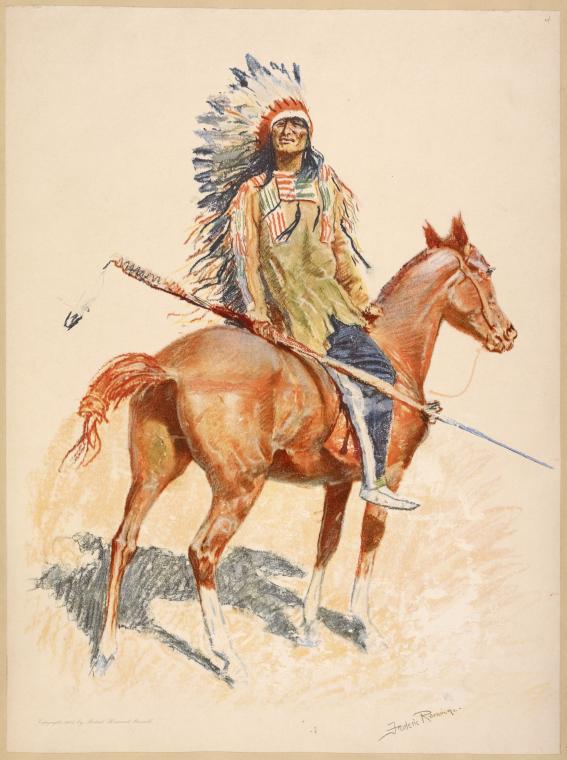
 broke out, and I was detached from duty with the exploring party and required by Major Gabriel J. Rains, then commanding the district, to join an expedition against the Yakimas. They had some time before killed their agent, and in consequence a force under Major Granville O. Haller had been sent out from the Dalles of the Columbia to chastise them;
broke out, and I was detached from duty with the exploring party and required by Major Gabriel J. Rains, then commanding the district, to join an expedition against the Yakimas. They had some time before killed their agent, and in consequence a force under Major Granville O. Haller had been sent out from the Dalles of the Columbia to chastise them;  but the expedition had not been successful; in fact, it had been driven back, losing a number of men and two mountain howitzers.
but the expedition had not been successful; in fact, it had been driven back, losing a number of men and two mountain howitzers.
The object of the second expedition was to retrieve this disaster. The force was composed of a small body of regular troops, and a regiment of Oregon mounted volunteers under command of Colonel James W. Nesmith—subsequently for several years United States Senator from Oregon. The whole force was under the command of Major Rains, Fourth Infantry, who, in order that he might rank Nesmith, by some hocus-pocus had been made a brigadier-general, under an appointment from the Governor of Washington Territory.
The whole force was under the command of Major Rains, Fourth Infantry, who, in order that he might rank Nesmith, by some hocus-pocus had been made a brigadier-general, under an appointment from the Governor of Washington Territory.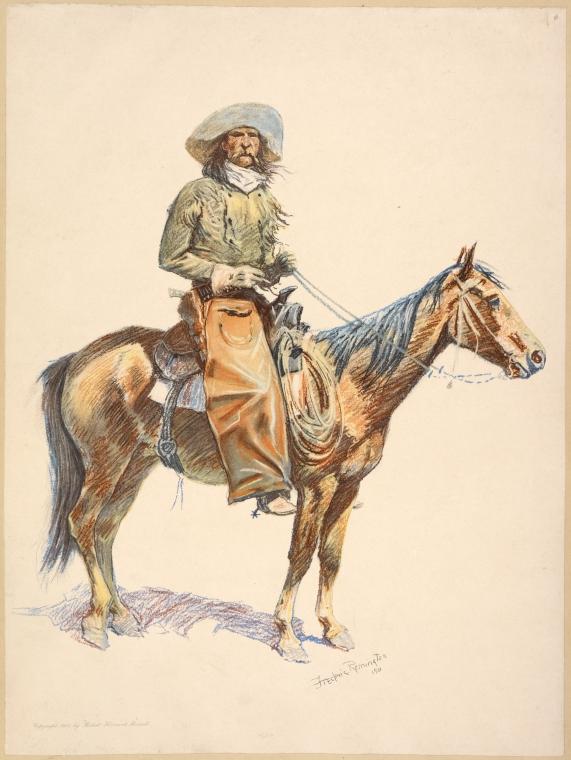
 The whole force was under the command of Major Rains, Fourth Infantry, who, in order that he might rank Nesmith, by some hocus-pocus had been made a brigadier-general, under an appointment from the Governor of Washington Territory.
The whole force was under the command of Major Rains, Fourth Infantry, who, in order that he might rank Nesmith, by some hocus-pocus had been made a brigadier-general, under an appointment from the Governor of Washington Territory.
We started from the Dalles October 30, under conditions that were not conducive to success. The season was late for operations; and worse still, the command was not in accord with the commanding officer, because of general belief in his incompetency, and on account of the fictitious rank he assumed. On the second day out I struck a small body of Indians with my detachment of dragoons, but was unable to do them any particular injury beyond getting possession of a large quantity of their winter food , which their hurried departure compelled them to abandon. This food consisted principally of dried salmon-pulverized and packed in sacks made of grass-dried huckleberries, and dried camas; the latter a bulbous root about the size of a small onion, which, when roasted and ground, is made into bread by the Indians and has a taste somewhat like cooked chestnuts.
, which their hurried departure compelled them to abandon. This food consisted principally of dried salmon-pulverized and packed in sacks made of grass-dried huckleberries, and dried camas; the latter a bulbous root about the size of a small onion, which, when roasted and ground, is made into bread by the Indians and has a taste somewhat like cooked chestnuts.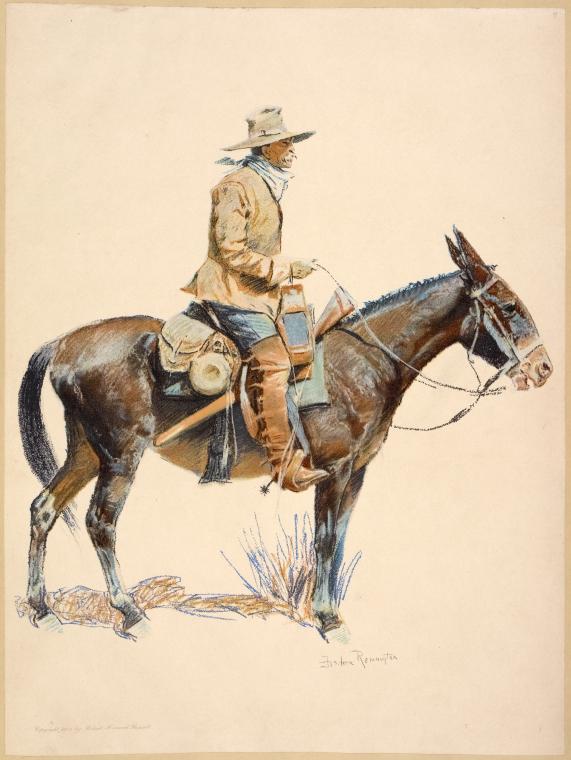
 , which their hurried departure compelled them to abandon. This food consisted principally of dried salmon-pulverized and packed in sacks made of grass-dried huckleberries, and dried camas; the latter a bulbous root about the size of a small onion, which, when roasted and ground, is made into bread by the Indians and has a taste somewhat like cooked chestnuts.
, which their hurried departure compelled them to abandon. This food consisted principally of dried salmon-pulverized and packed in sacks made of grass-dried huckleberries, and dried camas; the latter a bulbous root about the size of a small onion, which, when roasted and ground, is made into bread by the Indians and has a taste somewhat like cooked chestnuts.
Our objective point was Father Pandoza's Mission, in the Yakima Valley, which could be reached by two different routes, and though celerity of movement was essential,
which could be reached by two different routes, and though celerity of movement was essential,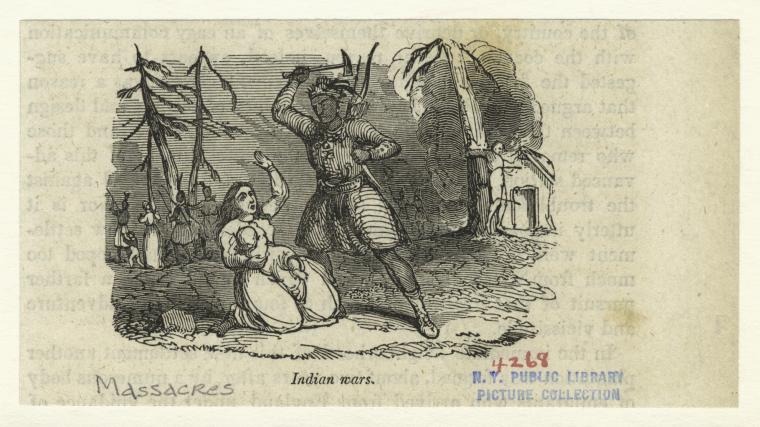 our commanding officer "strategically" adopted the longer route, and thus the Indians had ample opportunity to get away with their horses, cattle, women and children, and camp property
our commanding officer "strategically" adopted the longer route, and thus the Indians had ample opportunity to get away with their horses, cattle, women and children, and camp property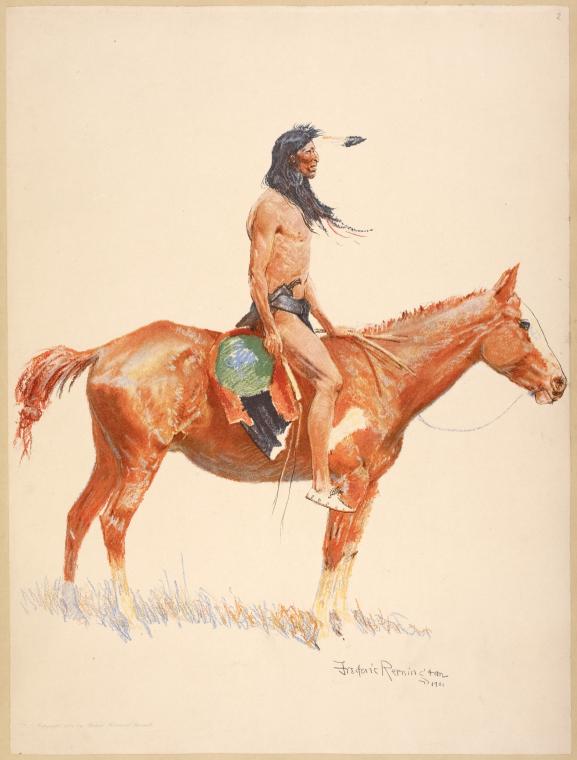 .
.
 which could be reached by two different routes, and though celerity of movement was essential,
which could be reached by two different routes, and though celerity of movement was essential, our commanding officer "strategically" adopted the longer route, and thus the Indians had ample opportunity to get away with their horses, cattle, women and children, and camp property
our commanding officer "strategically" adopted the longer route, and thus the Indians had ample opportunity to get away with their horses, cattle, women and children, and camp property .
.After the encounter which I just now referred to, the command, which had halted to learn the results of my chase, resumed its march to and through the Klikitat canon, and into the lower Yakima Valley, in the direction of the Yakima River. I had charge at the head of the column as it passed through the canon, and on entering the valley beyond, saw in the distance five or six Indian scouts,
in the direction of the Yakima River. I had charge at the head of the column as it passed through the canon, and on entering the valley beyond, saw in the distance five or six Indian scouts, whom I pressed very closely, until after a run of several miles they escaped across the Yakima River.
whom I pressed very closely, until after a run of several miles they escaped across the Yakima River.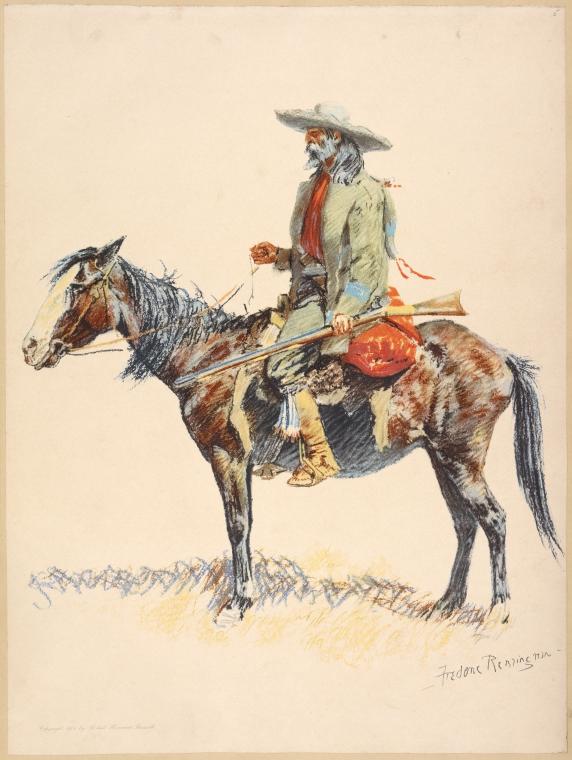
 in the direction of the Yakima River. I had charge at the head of the column as it passed through the canon, and on entering the valley beyond, saw in the distance five or six Indian scouts,
in the direction of the Yakima River. I had charge at the head of the column as it passed through the canon, and on entering the valley beyond, saw in the distance five or six Indian scouts, whom I pressed very closely, until after a run of several miles they escaped across the Yakima River.
whom I pressed very closely, until after a run of several miles they escaped across the Yakima River.
The soil in the valley was light and dry, and the movement of animals over it raised great clouds of dust, that rendered it very difficult to distinguish friend from foe; and as I was now separated from the main column a considerable distance, I deemed it prudent to call a halt until we could discover the direction taken by the principal body of the Indians. We soon learned that they had gone up the valley, and looking that way, we discovered a column of alkali dust approaching us, about a mile distant, interposing between my little detachment and the point where I knew General Rains intended to encamp for the night. After hastily consulting with Lieutenant Edward H. Day, of the Third United States Artillery, who was with me, we both concluded that the dust was caused by a body of the enemy which had slipped in between us and our main force. There seemed no alternative left us but to get back to our friends by charging through these Indians; 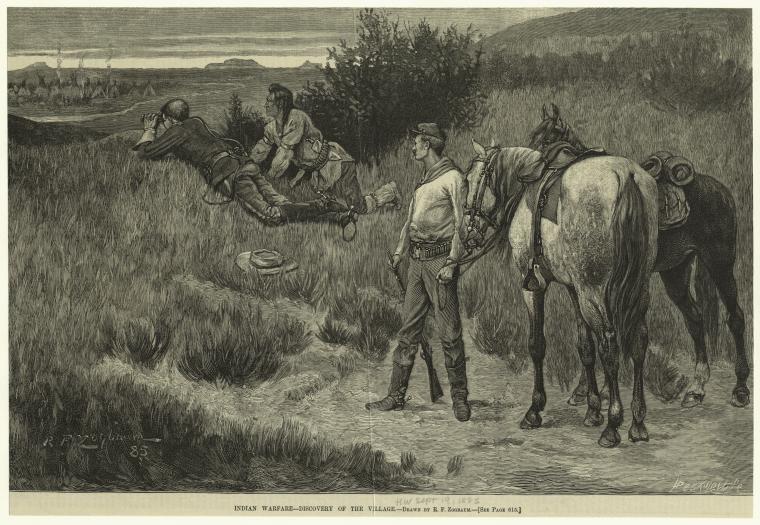 and as their cloud of dust was much larger than ours, this appeared a desperate chance. Preparations to charge were begun, however, but, much to our surprise, before they were completed the approaching party halted for a moment and then commenced to retreat.
and as their cloud of dust was much larger than ours, this appeared a desperate chance. Preparations to charge were begun, however, but, much to our surprise, before they were completed the approaching party halted for a moment and then commenced to retreat. This calmed the throbbing of our hearts, and with a wild cheer we started in a hot pursuit, that continued for about two miles, when to our great relief we discovered that we were driving into Rains's camp a squadron of Nesmith's battalion of Oregon volunteers that we had mistaken for Indians, and who in turn believed us to be indians. When camp was reached, we all indulged in a hearty laugh over the affair, and at the fright each party had given the other. The explanations which ensued proved that the squadron of volunteers had separated from the column at the same time that I had when we debouched from the canon, and had pursued an intermediate trail through the hills, which brought it into the valley of the Yakima at a point higher up the river than where I had struck it.
This calmed the throbbing of our hearts, and with a wild cheer we started in a hot pursuit, that continued for about two miles, when to our great relief we discovered that we were driving into Rains's camp a squadron of Nesmith's battalion of Oregon volunteers that we had mistaken for Indians, and who in turn believed us to be indians. When camp was reached, we all indulged in a hearty laugh over the affair, and at the fright each party had given the other. The explanations which ensued proved that the squadron of volunteers had separated from the column at the same time that I had when we debouched from the canon, and had pursued an intermediate trail through the hills, which brought it into the valley of the Yakima at a point higher up the river than where I had struck it.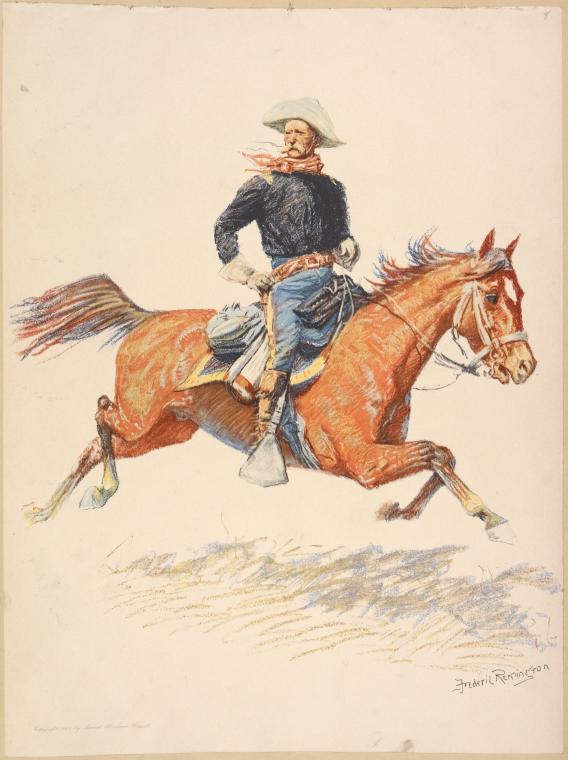
 and as their cloud of dust was much larger than ours, this appeared a desperate chance. Preparations to charge were begun, however, but, much to our surprise, before they were completed the approaching party halted for a moment and then commenced to retreat.
and as their cloud of dust was much larger than ours, this appeared a desperate chance. Preparations to charge were begun, however, but, much to our surprise, before they were completed the approaching party halted for a moment and then commenced to retreat. This calmed the throbbing of our hearts, and with a wild cheer we started in a hot pursuit, that continued for about two miles, when to our great relief we discovered that we were driving into Rains's camp a squadron of Nesmith's battalion of Oregon volunteers that we had mistaken for Indians, and who in turn believed us to be indians. When camp was reached, we all indulged in a hearty laugh over the affair, and at the fright each party had given the other. The explanations which ensued proved that the squadron of volunteers had separated from the column at the same time that I had when we debouched from the canon, and had pursued an intermediate trail through the hills, which brought it into the valley of the Yakima at a point higher up the river than where I had struck it.
This calmed the throbbing of our hearts, and with a wild cheer we started in a hot pursuit, that continued for about two miles, when to our great relief we discovered that we were driving into Rains's camp a squadron of Nesmith's battalion of Oregon volunteers that we had mistaken for Indians, and who in turn believed us to be indians. When camp was reached, we all indulged in a hearty laugh over the affair, and at the fright each party had given the other. The explanations which ensued proved that the squadron of volunteers had separated from the column at the same time that I had when we debouched from the canon, and had pursued an intermediate trail through the hills, which brought it into the valley of the Yakima at a point higher up the river than where I had struck it.
Next day we resumed our march up the valley, parallel to the Yakima. About 1 o'clock we saw a large body of Indians on the opposite side of the river, and the general commanding made up his mind to cross and attack them.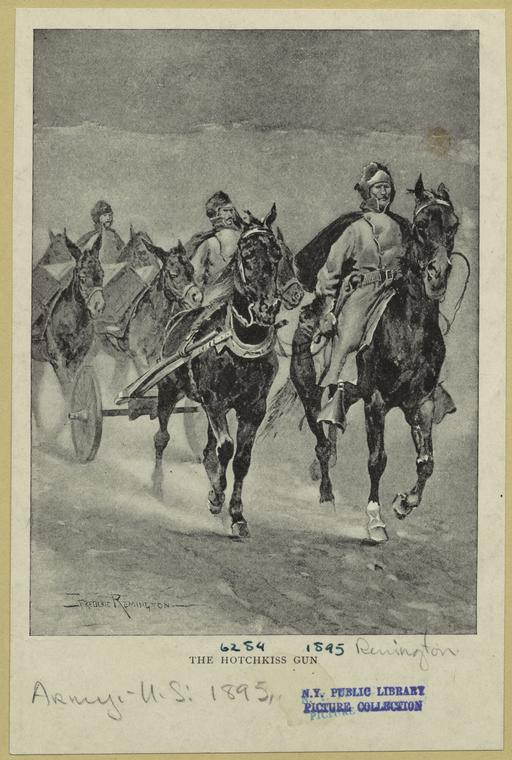 The stream was cold, deep, and swift, still I succeeded in passing my dragoons over safely, but had hardly got them well on the opposite bank when the Indians swooped down upon us. Dismounting my men, we received the savages with a heavy fire, which brought them to a halt with some damage and more or less confusion.
The stream was cold, deep, and swift, still I succeeded in passing my dragoons over safely, but had hardly got them well on the opposite bank when the Indians swooped down upon us. Dismounting my men, we received the savages with a heavy fire, which brought them to a halt with some damage and more or less confusion.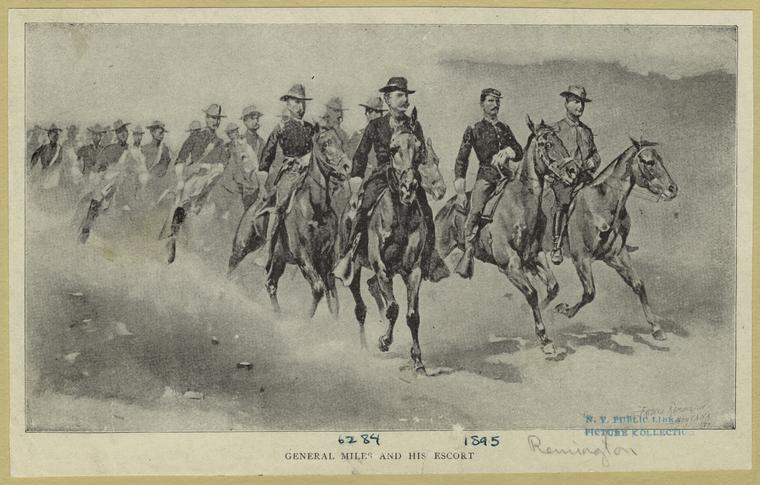
 The stream was cold, deep, and swift, still I succeeded in passing my dragoons over safely, but had hardly got them well on the opposite bank when the Indians swooped down upon us. Dismounting my men, we received the savages with a heavy fire, which brought them to a halt with some damage and more or less confusion.
The stream was cold, deep, and swift, still I succeeded in passing my dragoons over safely, but had hardly got them well on the opposite bank when the Indians swooped down upon us. Dismounting my men, we received the savages with a heavy fire, which brought them to a halt with some damage and more or less confusion.
General Rains now became very much excited and alarmed about me, and endeavored to ford the swift river with his infantry and artillery, but soon had to abandon the attempt, as three or four of the poor fellows were swept off their feet and drowned. Meantime Nesmith came up with his mounted force, crossed over, and joined me.
but soon had to abandon the attempt, as three or four of the poor fellows were swept off their feet and drowned. Meantime Nesmith came up with his mounted force, crossed over, and joined me.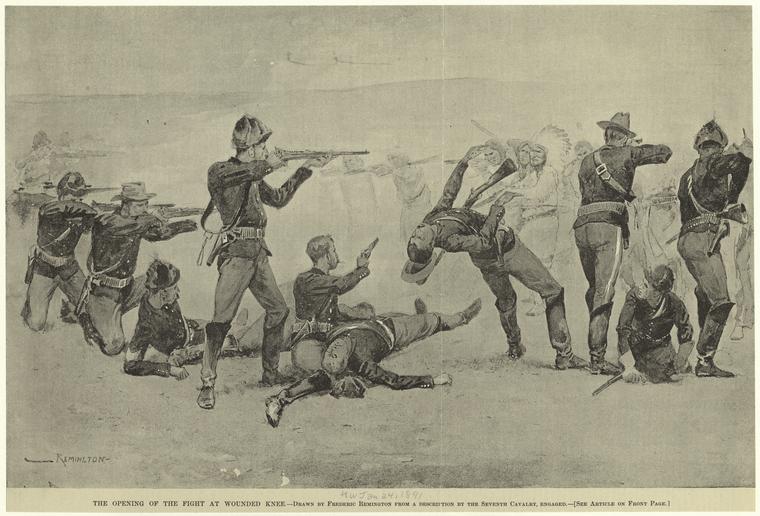
 but soon had to abandon the attempt, as three or four of the poor fellows were swept off their feet and drowned. Meantime Nesmith came up with his mounted force, crossed over, and joined me.
but soon had to abandon the attempt, as three or four of the poor fellows were swept off their feet and drowned. Meantime Nesmith came up with his mounted force, crossed over, and joined me.
The Indians now fell back to a high ridge, on the crest of which they marched and countermarched, threatening to charge down its face. Most of them were naked, and as their persons were painted in gaudy colors and decorated with strips of red flannel, red blankets and gay war-bonnets, their appearance presented a scene of picturesque barbarism, fascinating but repulsive. As they numbered about six hundred, the chances of whipping them did not seem overwhelmingly in our favor, yet Nesmith and I concluded we would give them a little fight, provided we could engage them without going beyond the ridge. But all our efforts were in vain, for as we advanced they retreated, and as we drew back they reappeared and renewed their parade and noisy demonstrations, all the time beating their drums and yelling lustily. They could not be tempted into a fight where we desired it, however, and as we felt unequal to any pursuit beyond the ridge without the assistance of the infantry and artillery, we re-crossed the river and encamped with Rains. It soon became apparent that the noisy demonstrations of the Indians were intended only as a blind to cover the escape of their women and children to a place of safety in the mountains.
the Sioux war -- final review of General Miles's army at Pine Ridge -- the infantry. (1891)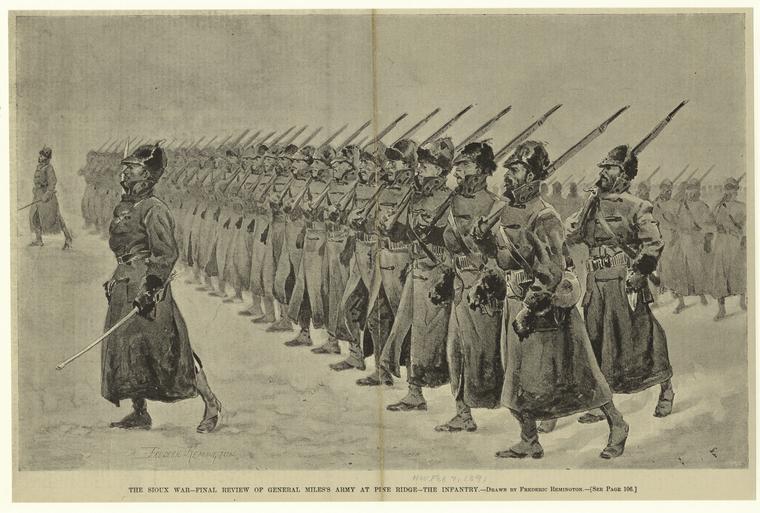
the Sioux war -- final review of General Miles's army at Pine Ridge -- the infantry. (1891)

Next morning we took up our march without crossing the river; and as our route would lead us by the point on the opposite bank where the Indians had made their picturesque display the day before, they at an early hour came over to our side, and rapidly moved ahead of us to some distant hills, leaving in our pathway some of the more venturesome young braves, who attempted, to retard our advance by opening fire at long range from favorable places where they lay concealed. This fire did us little harm, but it had the effect of making our progress so slow that the patience of every one but General Rains was well-nigh exhausted.

About 2 o'clock in the afternoon we arrived well up near the base of the range of hills, and though it was growing late we still had time to accomplish something, but our commanding officer decided that it was best to go into camp, and make a systematic attack next morning. I proposed that he let me charge with my dragoons through the narrow canon where the river broke through the range, while the infantry should charge up the hill and drive the enemy from the top down on the other side. In this way I thought we might possibly catch some of the fugitives, but his extreme caution led him to refuse the suggestion, so we pitched our tents out of range of their desultory fire, but near enough to observe plainly their menacing and tantalizing exhibitions of contempt.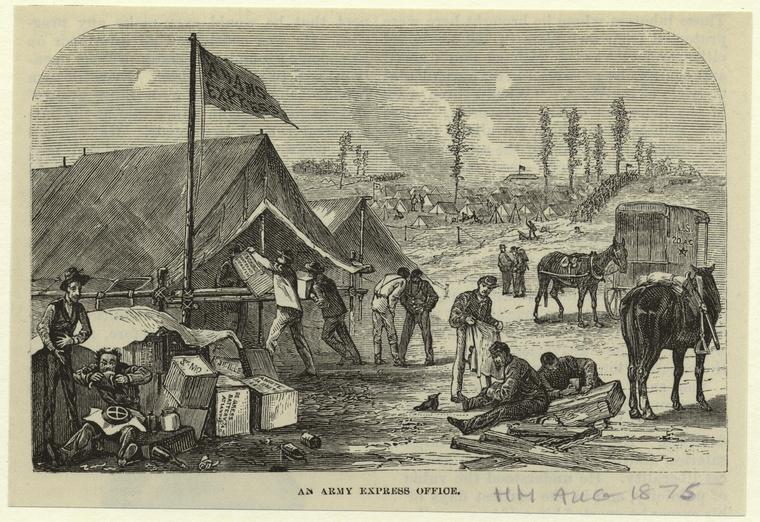

In addition to firing occasionally, they called us all sorts of bad names, made indecent gestures, and aggravated us, so that between 3 and 4 o'clock in the afternoon, by an inexplicable concert of action, and with a serious breach of discipline, a large number of the men and many of the officers broke en masse from the camp with loud yells and charged the offending savages. As soon as this mob got within musket-shot they opened fire on the Indians, who ran down the other face of the ridge without making the slightest resistance. The hill was readily taken by this unmilitary proceeding, and no one was hurt on either side, but as Rains would not permit it to be held, a large bonfire was lighted on the crest in celebration of the victory, and then all hands marched back to camp, where they had no sooner arrived and got settled down than the Indians returned to the summit of the ridge, seemingly to enjoy the fire that had been so generously built for their benefit, and with renewed taunts and gestures continued to insult us.
Our camp that night was strongly picketed, and when we awoke in the morning the Indians still occupied their position on the hill. At daylight we advanced against them, two or three companies of infantry moving forward to drive them from the summit, while our main column passed through the canon into the upper Yakima Valley led by my dragoons, who were not allowed to charge into the gorge, as the celerity of such a movement might cause the tactical combination to fail.
As we passed slowly and cautiously through the canon the Indians ran rapidly away, and when we reached the farther end they had entirely disappeared from our front, except one old fellow, whose lame horse prevented him keeping up with the main body. This presented an opportunity for gaining results which all thought should not be lost, so our guide, an Indian named "Cut-mouth John," seized upon it, and giving hot chase, soon, overtook the poor creature, whom he speedily killed without much danger to himself, for the fugitive was armed with only an old Hudson's Bay flint-lock horse-pistol which could not be discharged.
seized upon it, and giving hot chase, soon, overtook the poor creature, whom he speedily killed without much danger to himself, for the fugitive was armed with only an old Hudson's Bay flint-lock horse-pistol which could not be discharged.
 seized upon it, and giving hot chase, soon, overtook the poor creature, whom he speedily killed without much danger to himself, for the fugitive was armed with only an old Hudson's Bay flint-lock horse-pistol which could not be discharged.
seized upon it, and giving hot chase, soon, overtook the poor creature, whom he speedily killed without much danger to himself, for the fugitive was armed with only an old Hudson's Bay flint-lock horse-pistol which could not be discharged.
"Cut-mouth John's" engagement began and ended all the fighting that took place on this occasion, and much disappointment and discontent followed, Nesmith's mounted force and my dragoons being particularly disgusted because they had not been "given a chance."
being particularly disgusted because they had not been "given a chance."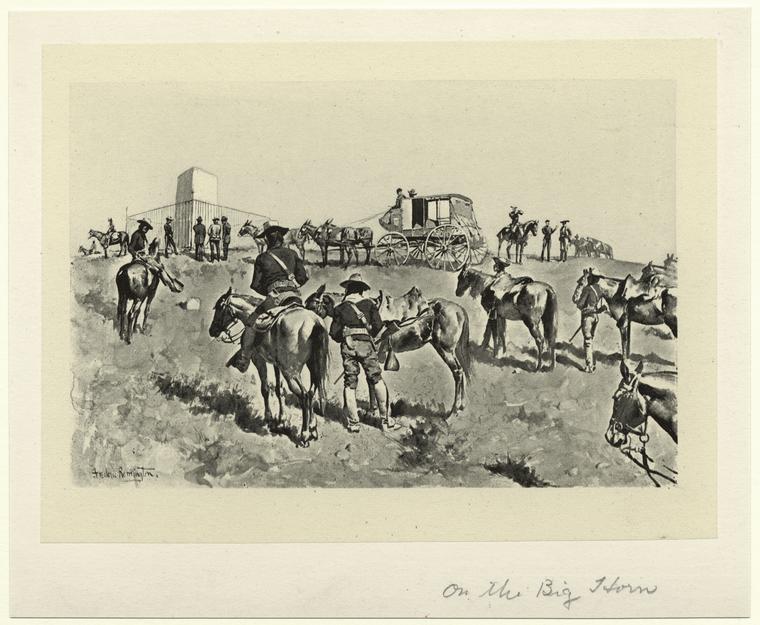 During the remainder of the day we cautiously followed the retreating foe, and late in the evening went into camp a short distance from Father Pandoza's Mission;
During the remainder of the day we cautiously followed the retreating foe, and late in the evening went into camp a short distance from Father Pandoza's Mission;  where we were to await a small column of troops under command of Captain Maurice Maloney, of the Fourth Infantry, that was to join us from
where we were to await a small column of troops under command of Captain Maurice Maloney, of the Fourth Infantry, that was to join us from Steilicom by way of the Natchez Pass,
Steilicom by way of the Natchez Pass,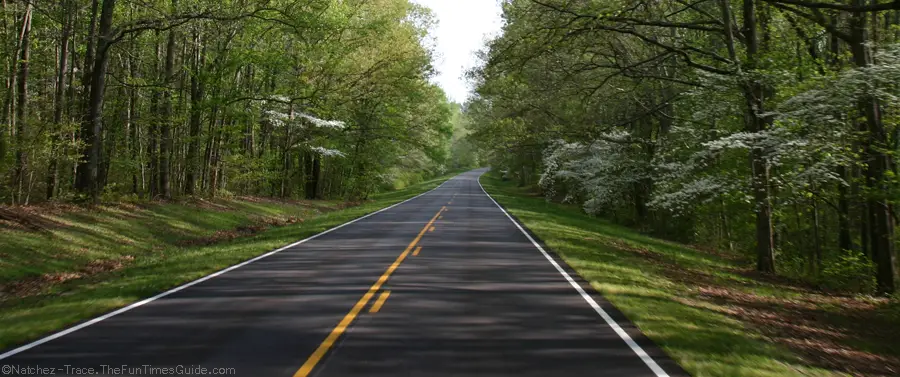 and from which no tidings had as yet been received.
and from which no tidings had as yet been received.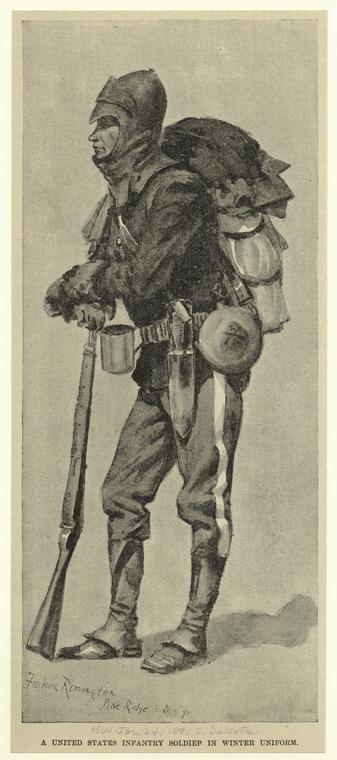
 being particularly disgusted because they had not been "given a chance."
being particularly disgusted because they had not been "given a chance." During the remainder of the day we cautiously followed the retreating foe, and late in the evening went into camp a short distance from Father Pandoza's Mission;
During the remainder of the day we cautiously followed the retreating foe, and late in the evening went into camp a short distance from Father Pandoza's Mission;  where we were to await a small column of troops under command of Captain Maurice Maloney, of the Fourth Infantry, that was to join us from
where we were to await a small column of troops under command of Captain Maurice Maloney, of the Fourth Infantry, that was to join us from and from which no tidings had as yet been received.
and from which no tidings had as yet been received.
Next morning the first thing I saw when I put my head out from my blankets was "Cut-mouth John," already mounted and parading himself through the camp.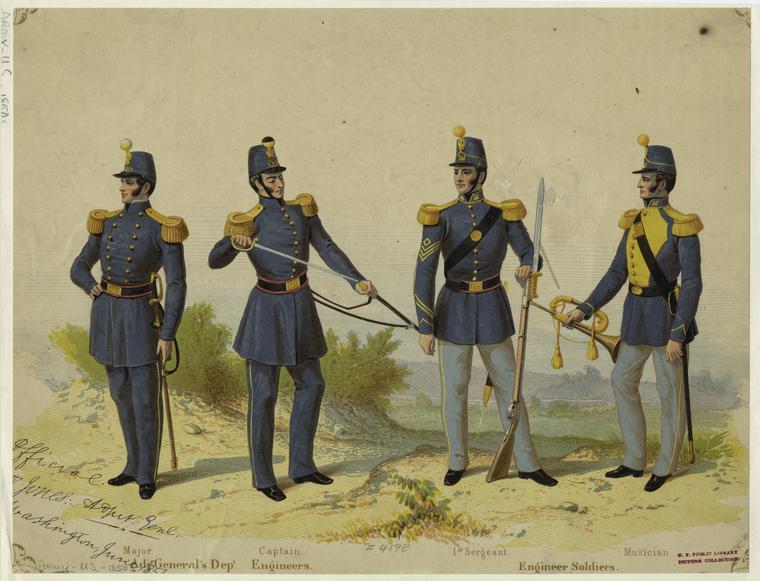 The scalp of the Indian he had despatched the day before was tied to the cross-bar of his bridle bit, the hair dangling almost to the ground, and John was decked out in the sacred vestments of Father Pandoza, having, long before any one was stirring in camp, ransacked the log-cabin at the Mission in which the good man had lived.
The scalp of the Indian he had despatched the day before was tied to the cross-bar of his bridle bit, the hair dangling almost to the ground, and John was decked out in the sacred vestments of Father Pandoza, having, long before any one was stirring in camp, ransacked the log-cabin at the Mission in which the good man had lived. John was at all times a most repulsive looking individual, a part of his mouth having been shot away in a fight with Indians near Walla Walla
John was at all times a most repulsive looking individual, a part of his mouth having been shot away in a fight with Indians near Walla Walla  some years before, in which a Methodist missionary had been killed;
some years before, in which a Methodist missionary had been killed;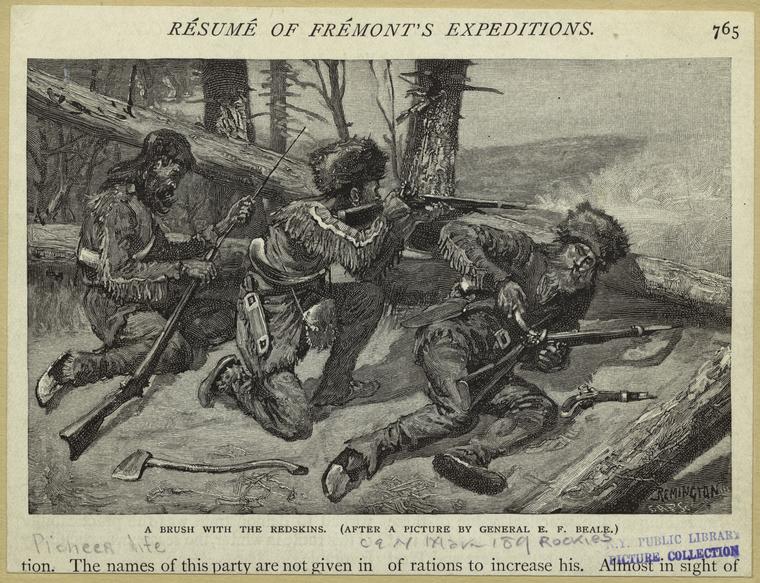 but his revolting personal appearance was now worse than ever, and the sacrilegious use of Father Pandoza's vestments, coupled with the ghastly scalp that hung from his bridle,
but his revolting personal appearance was now worse than ever, and the sacrilegious use of Father Pandoza's vestments, coupled with the ghastly scalp that hung from his bridle,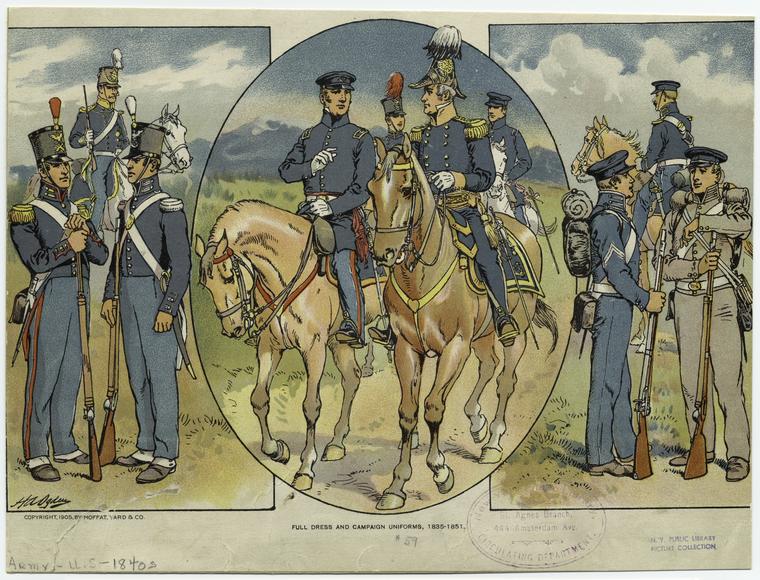 so turned opinion against him that he was soon captured, dismounted, and his parade brought to an abrupt close, and I doubt whether he ever after quite reinstated himself in the good graces of the command.
so turned opinion against him that he was soon captured, dismounted, and his parade brought to an abrupt close, and I doubt whether he ever after quite reinstated himself in the good graces of the command.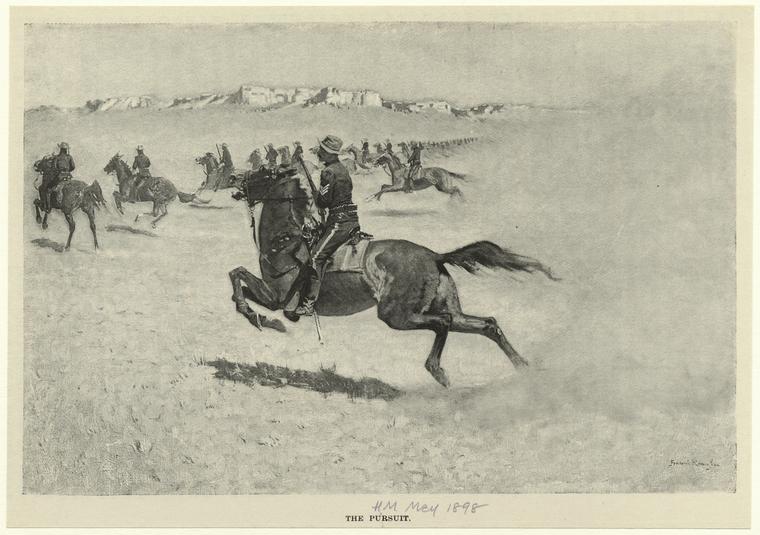
 The scalp of the Indian he had despatched the day before was tied to the cross-bar of his bridle bit, the hair dangling almost to the ground, and John was decked out in the sacred vestments of Father Pandoza, having, long before any one was stirring in camp, ransacked the log-cabin at the Mission in which the good man had lived.
The scalp of the Indian he had despatched the day before was tied to the cross-bar of his bridle bit, the hair dangling almost to the ground, and John was decked out in the sacred vestments of Father Pandoza, having, long before any one was stirring in camp, ransacked the log-cabin at the Mission in which the good man had lived. John was at all times a most repulsive looking individual, a part of his mouth having been shot away in a fight with Indians near Walla Walla
John was at all times a most repulsive looking individual, a part of his mouth having been shot away in a fight with Indians near Walla Walla  some years before, in which a Methodist missionary had been killed;
some years before, in which a Methodist missionary had been killed; but his revolting personal appearance was now worse than ever, and the sacrilegious use of Father Pandoza's vestments, coupled with the ghastly scalp that hung from his bridle,
but his revolting personal appearance was now worse than ever, and the sacrilegious use of Father Pandoza's vestments, coupled with the ghastly scalp that hung from his bridle, so turned opinion against him that he was soon captured, dismounted, and his parade brought to an abrupt close, and I doubt whether he ever after quite reinstated himself in the good graces of the command.
so turned opinion against him that he was soon captured, dismounted, and his parade brought to an abrupt close, and I doubt whether he ever after quite reinstated himself in the good graces of the command.
In the course of the day nearly all the men visited the Mission, but as it had been plundered by the Indians at the outbreak of hostilities, when Father Pandoza was carried off, little of value was left about it except a considerable herd of pigs, which the father with great difficulty had succeeded in accumulating from a very small beginning. The pigs had not been disturbed by the Indians, but the straggling troops soon disposed of them, and then turned their attention to the cabbages and potatoes in the garden, with the intention, no doubt, of dining that day on fresh pork and fresh vegetables instead of on salt junk and hard bread, which formed their regular diet on the march. In digging up the potatoes some one discovered half a keg of powder, which had been buried in the garden by the good father to prevent the hostile Indians from getting it to use against the whites. As soon as this was unearthed wild excitement ensued, and a cry arose that Father Pandoza was the person who furnished powder to the Indians; that here was the proof; that at last the mysterious means by which the Indians obtained ammunition was explained—and a rush was made for the mission building. This was a comfortable log-house of good size, built by the Indians for a school and church, and attached to one end was the log-cabin residence of the priest. Its destruction was a matter of but a few moments. A large heap of dry wood was quickly collected and piled in the building, matches applied, and the whole Mission, including the priest's house, was soon enveloped in flames, and burned to the ground before the officers in camp became aware of the disgraceful plundering in which their men were engaged.
In digging up the potatoes some one discovered half a keg of powder, which had been buried in the garden by the good father to prevent the hostile Indians from getting it to use against the whites. As soon as this was unearthed wild excitement ensued, and a cry arose that Father Pandoza was the person who furnished powder to the Indians; that here was the proof; that at last the mysterious means by which the Indians obtained ammunition was explained—and a rush was made for the mission building. This was a comfortable log-house of good size, built by the Indians for a school and church, and attached to one end was the log-cabin residence of the priest. Its destruction was a matter of but a few moments. A large heap of dry wood was quickly collected and piled in the building, matches applied, and the whole Mission, including the priest's house, was soon enveloped in flames, and burned to the ground before the officers in camp became aware of the disgraceful plundering in which their men were engaged.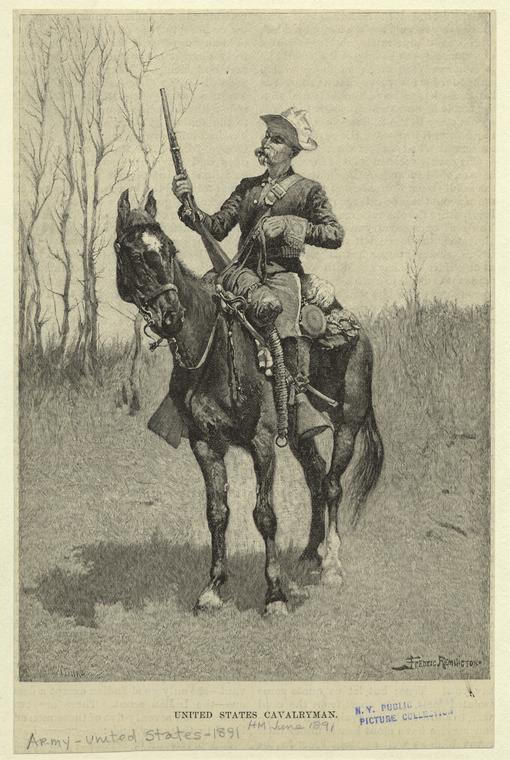
 In digging up the potatoes some one discovered half a keg of powder, which had been buried in the garden by the good father to prevent the hostile Indians from getting it to use against the whites. As soon as this was unearthed wild excitement ensued, and a cry arose that Father Pandoza was the person who furnished powder to the Indians; that here was the proof; that at last the mysterious means by which the Indians obtained ammunition was explained—and a rush was made for the mission building. This was a comfortable log-house of good size, built by the Indians for a school and church, and attached to one end was the log-cabin residence of the priest. Its destruction was a matter of but a few moments. A large heap of dry wood was quickly collected and piled in the building, matches applied, and the whole Mission, including the priest's house, was soon enveloped in flames, and burned to the ground before the officers in camp became aware of the disgraceful plundering in which their men were engaged.
In digging up the potatoes some one discovered half a keg of powder, which had been buried in the garden by the good father to prevent the hostile Indians from getting it to use against the whites. As soon as this was unearthed wild excitement ensued, and a cry arose that Father Pandoza was the person who furnished powder to the Indians; that here was the proof; that at last the mysterious means by which the Indians obtained ammunition was explained—and a rush was made for the mission building. This was a comfortable log-house of good size, built by the Indians for a school and church, and attached to one end was the log-cabin residence of the priest. Its destruction was a matter of but a few moments. A large heap of dry wood was quickly collected and piled in the building, matches applied, and the whole Mission, including the priest's house, was soon enveloped in flames, and burned to the ground before the officers in camp became aware of the disgraceful plundering in which their men were engaged.
The commanding officer having received no news from Captain Maloney during the day, Colonel Nesmith and I were ordered to go to his rescue, as it was concluded that he had been surrounded by Indians in the Natchez Pass. We started early the next morning, the snow falling slightly as we set out, and soon arrived at the eastern mouth of the Natchez Pass. On the way we noticed an abandoned Indian village, which had evidently not been occupied for some time. As we proceeded the storm increased, and the snow-fall became deeper and deeper, until finally our horses could not travel through it. In consequence we were compelled to give up further efforts to advance, and obliged to turn back to the abandoned village, where we encamped for the night. Near night-fall the storm greatly increased, and our bivouac became most uncomfortable; but spreading my blankets on the snow and covering them with Indian matting, I turned in and slept with that soundness and refreshment accorded by nature to one exhausted by fatigue. When I awoke in the morning I found myself under about two feet of snow, from which I arose with difficulty, yet grateful that it had kept me warm during the night.
After a cup of coffee and a little hard bread, it was decided we should return to the main camp near the Mission, for we were now confident that Maloney was delayed by the snow, and safe enough on the other side of the mountains. At all events he was beyond aid from us, for the impassable snowdrifts could not be overcome with the means in our possession. It turned out that our suppositions as to the cause of his delay were correct. He had met with the same difficulties that confronted us, and had been compelled to go into camp.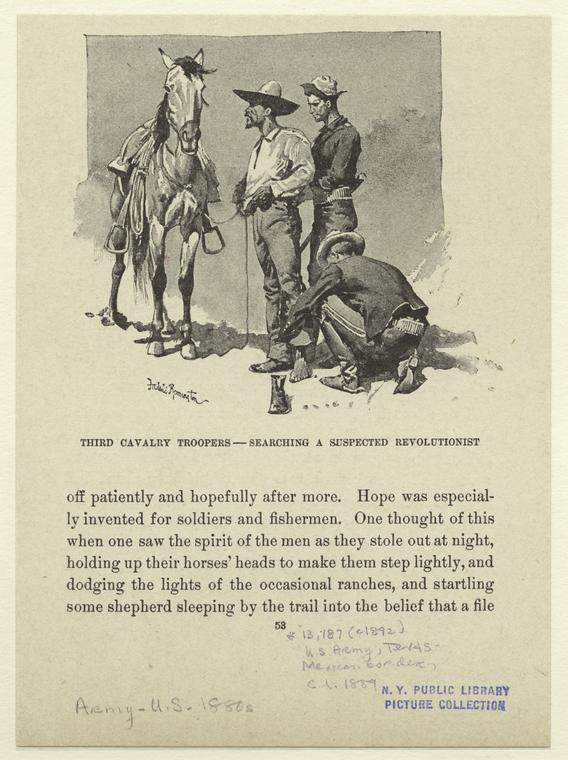

Meanwhile valuable time had been lost, and the Indians, with their families and stock, were well on their way to the Okenagan country, a region into which we could not penetrate in the winter season. No other course was therefore left but to complete the dismal failure of the expedition by returning home, and our commander readily gave the order to march back to the Dalles by the "short" route over the Yakima Mountains.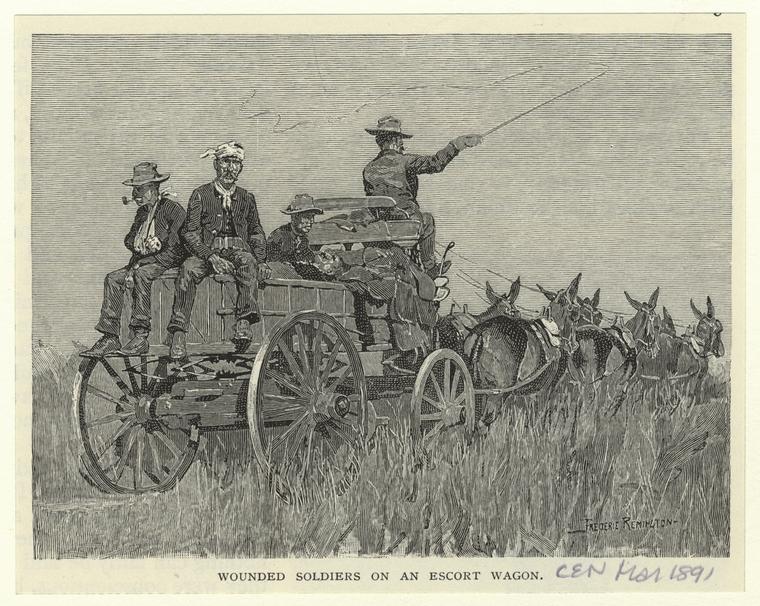

As the storm was still unabated, it was evident our march home would be a most difficult one, and it was deemed advisable to start back at once, lest we should be blocked up in the mountains by the snows for a period beyond which our provisions would not last. Relying on the fact that the short route to the Dalles would lead us over the range at its most depressed point, where it was hoped the depth of snow was not yet so great as to make the route impassable, we started with Colonel Nesmith's battalion in advance to break the road, followed by my dragoons. In the valley we made rapid progress, but when we reached the mountain every step we took up its side showed the snow to be growing deeper and deeper. At last Nesmith reached the summit, and there found a depth of about six feet of snow covering the plateau in every direction, concealing all signs of the trail so thoroughly that his guides became bewildered and took the wrong divide. The moment I arrived at the top my guide—Donald Mc Kay—who knew perfectly the whole Yakima range, discovered Nesmith's mistake. Word was sent to bring him back, but as he had already nearly crossed the plateau, considerable delay occurred before he returned. When he arrived we began anew the work of breaking a road for the foot troops behind us, my detachment now in advance. The deep snow made our work extremely laborious, exhausting men and horses almost to the point of relinquishing the struggle, but our desperate situation required that we should get down into the valley beyond, or run the chance of perishing on the mountain in a storm which seemed unending. About midnight the column reached the valley, very tired and hungry, but much elated over its escape. We had spent a day of the most intense anxiety, especially those who had had the responsibility of keeping to the right trail, and been charged with the hard work of breaking the road for the infantry and artillery through such a depth of snow.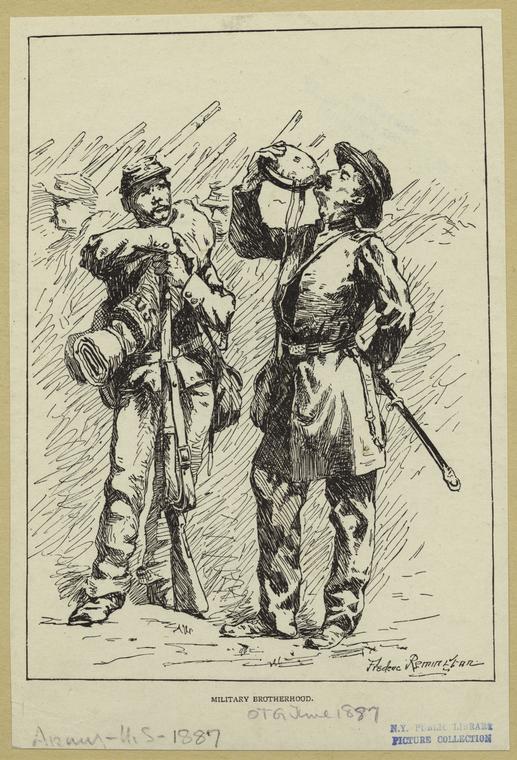

Our main difficulties were now over, and in due time we reached the Dalles, where almost everyone connected with the expedition voted it a wretched failure; indeed, General Rains himself could not think otherwise, but he scattered far and wide blame for the failure of his combinations. This, of course, led to criminations and recriminations, which eventuated in charges of incompetency preferred against him by Captain Edward O. C. Ord, of the Third Artillery. Rains met the charges with counter-charges against Ord, whom he accused of purloining Father Pandoza's shoes, when the soldiers in their fury about the ammunition destroyed the Mission.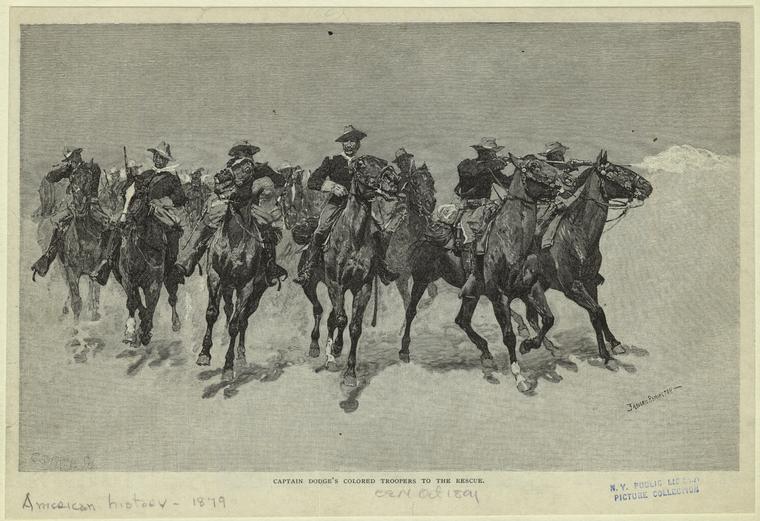 At the time of its destruction a rumor of this nature was circulated through camp, started by some wag, no doubt in jest; for Ord, who was somewhat eccentric in his habits, and had started on the expedition rather indifferently shod in carpet-slippers, here came out in a brand-new pair of shoes. Of course there was no real foundation for such a report, but Rains was not above small things, as the bringing of this petty accusation attests. Neither party was ever tried, for General John E. Wool the department commander, had not at command a sufficient number of officers of appropriate rank to constitute a court in the case of Rains, and the charges against Ord were very properly ignored on account of their trifling character.
At the time of its destruction a rumor of this nature was circulated through camp, started by some wag, no doubt in jest; for Ord, who was somewhat eccentric in his habits, and had started on the expedition rather indifferently shod in carpet-slippers, here came out in a brand-new pair of shoes. Of course there was no real foundation for such a report, but Rains was not above small things, as the bringing of this petty accusation attests. Neither party was ever tried, for General John E. Wool the department commander, had not at command a sufficient number of officers of appropriate rank to constitute a court in the case of Rains, and the charges against Ord were very properly ignored on account of their trifling character.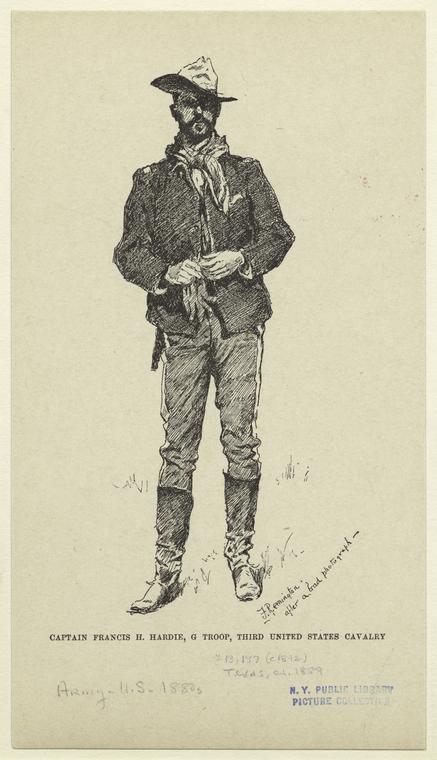
 At the time of its destruction a rumor of this nature was circulated through camp, started by some wag, no doubt in jest; for Ord, who was somewhat eccentric in his habits, and had started on the expedition rather indifferently shod in carpet-slippers, here came out in a brand-new pair of shoes. Of course there was no real foundation for such a report, but Rains was not above small things, as the bringing of this petty accusation attests. Neither party was ever tried, for General John E. Wool the department commander, had not at command a sufficient number of officers of appropriate rank to constitute a court in the case of Rains, and the charges against Ord were very properly ignored on account of their trifling character.
At the time of its destruction a rumor of this nature was circulated through camp, started by some wag, no doubt in jest; for Ord, who was somewhat eccentric in his habits, and had started on the expedition rather indifferently shod in carpet-slippers, here came out in a brand-new pair of shoes. Of course there was no real foundation for such a report, but Rains was not above small things, as the bringing of this petty accusation attests. Neither party was ever tried, for General John E. Wool the department commander, had not at command a sufficient number of officers of appropriate rank to constitute a court in the case of Rains, and the charges against Ord were very properly ignored on account of their trifling character.
Shortly after the expedition returned to the Dalles, my detachment was sent down to Fort Vancouver, and I remained at that post during the winter of 1855-'56, till late in March.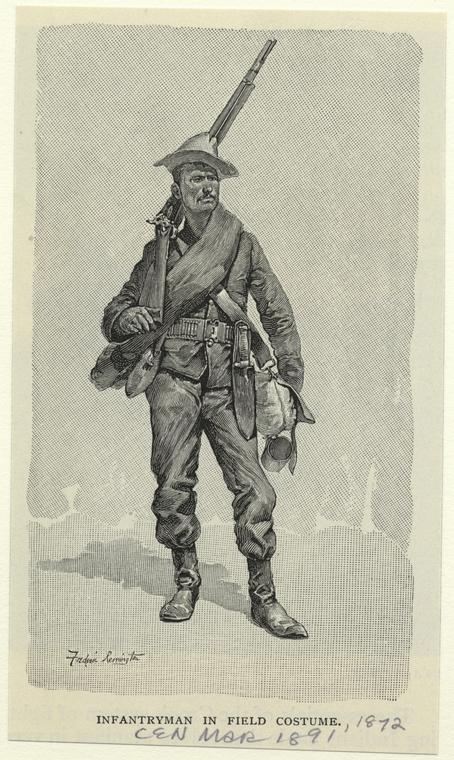

No comments:
Post a Comment